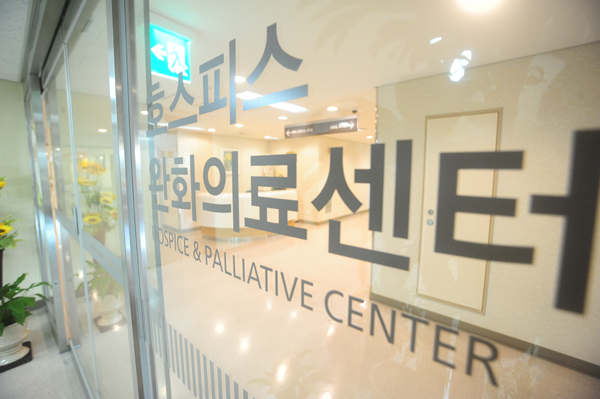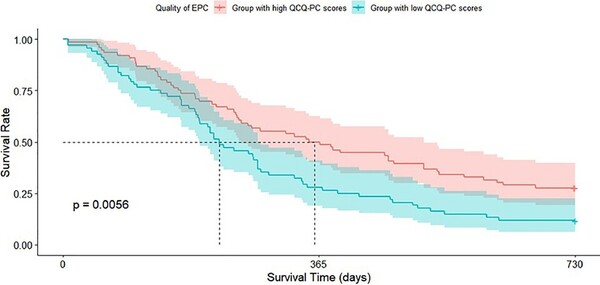A study has found that high-quality early palliative care services increase cancer patients’ survival rates and reduce depression.
A research team led by Professor Yun Young-ho of the Department of Family Medicine at Seoul National University Hospital (SNUH) announced these findings on Monday based on its analysis of the impact of early palliative care service quality on patients' mental health, quality of life, and survival rates among patients with advanced cancer.

This study is a secondary analysis of data from a randomized controlled clinical trial conducted from September 2017 to October 2018, involving 144 patients with advanced cancer from 12 hospitals in Korea.
The research team administered the Quality Care Questionnaire-Palliative Care (QCQ-PC) to patients and classified them into two groups based on their average scores: a high-quality palliative care group (76 patients) and a low-quality palliative care group (68 patients). Subsequently, the two groups were followed for depression (PHQ-9), quality of life (MQOL, EORTC QLQ-C15-PAL), self-care strategies (SAT-SF), and two-year survival rates.
Analysis showed that the depression prevalence rate in the high-quality palliative care group decreased from 35.5 percent to 14.7 percent after 24 weeks, a 20.8 percentage point decrease. In contrast, the low-quality palliative care group remained at 40.3 percent and only decreased to 39.1 percent.

Comparing two-year survival rates, the high-quality palliative care group had a 25.0 percent survival rate, while the low-quality group had an 11.8 percent survival rate, representing a more than twofold difference.
The high-quality palliative care group also showed significant improvement in self-management strategies. Scores for both preparation strategies and implementation strategies improved at both the 18-week and 24-week time points. This suggests that patients developed the ability to prepare for and respond to crisis situations caused by their disease through palliative care services.
The research team explained that the study is significant as it is the first to demonstrate that the quality level of palliative care services directly impacts patient survival and quality of life.
“In Korea, patients who need palliative care still aren't receiving sufficient services,” Professor Yun said. “We must expand palliative care services quantitatively while also creating a system that systematically evaluates and manages quality standards, ensuring patients can access high-quality palliative care anywhere.”
This study was published online in the Journal of Pain and Symptom Management, an international journal.
Related articles
- Bill seeks to include dementia, renal failure, and heart failure patients in the hospice program
- Outpatient visits a month earlier cut ER visits by 16% for terminal cancer patients
- Researchers find ways to avoid radiation therapy for terminal patients with metastatic cancer
- National Cancer Center sets up shelter for pediatric cancer patients receiving proton therapy
- Increase in insulin resistance sharply raises risk of depression

